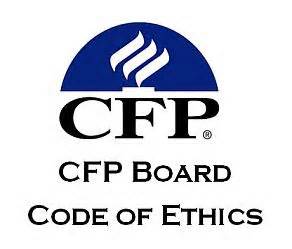
Financial advisors who hold a financial services designation are required to abide by a code of ethics associated with that designation. These financial advisors may not be aware, however, that failure to comply with such ethical standards could lead to a public sanction that any client or prospective client could consider when determining whether to do business with the financial advisor.
A decision rendered earlier this week by U.S. District Court Judge Richard Leon dismissed a lawsuit filed by Jeffrey and Kimberly Camarda, two financial advisors who each hold the CFP® designation. The Camardas, who are married, are associated with two businesses — an investment advisory firm that charges its clients a fee, and a consulting firm that sells insurance and charges its clients a commission. CFP Board, the organization that issues the CFP® designation, found that the Camardas had advertised the compensation method for both businesses as “fee-only,” a term that, according to CFP Board’s definition in its Standards of Professional Conduct, is permitted to be used only by CFP® professionals who receive “all of [their] compensation” from clients “in the form of fixed, flat, hourly, percentage or performance-based fees.” As a result of finding that the Camardas had misrepresented their compensation method, CFP Board sanctioned the Camardas with a public letter of admonition. The Camardas’ lawsuit was intended to prevent CFP Board from issuing the public sanction.
Judge Leon’s dismissal of the Camardas’ lawsuit is instructive for financial advisors who hold the CFP® designation and describe their compensation method as “fee-only.” These advisors may wish to ask themselves the following four questions to determine if they are in compliance with CFP Board’s Standards:
- Do I have a brokerage or insurance license?
- Have I received a commission relating to a securities transaction I performed on behalf of a client or relating to an insurance product I sold to a client?
- Is there a “related party” within my business structure that receives commissions? (A related party can be an individual or an entity with whom a financial advisor is directly associated, such as in an employer/employee relationship. A related party can also be an individual/entity with whom a financial advisor has an indirect relationship, such as in a multi-layered corporate structure.)
- Have I referred any of my advisory clients to a financial advisor or financial entity that charges a commission?
If you are a financial advisor who has described your compensation method as fee-only and you responded “yes” to any of the above questions, you may not be in compliance with CFP Board’s Standards. Non-compliance could lead to a CFP Board investigation, hearing and potential sanctions, the most serious of which include notification to the public of the wrongdoing.
Oyster Consulting employs experts who assist financial advisors in complying with financial regulations and the ethical standards associated with financial services designations.


